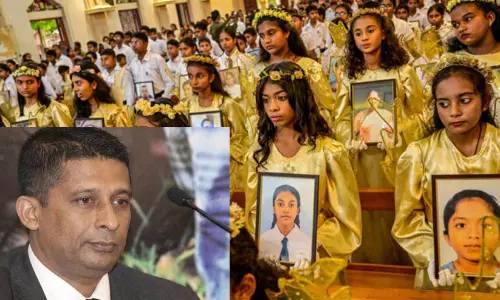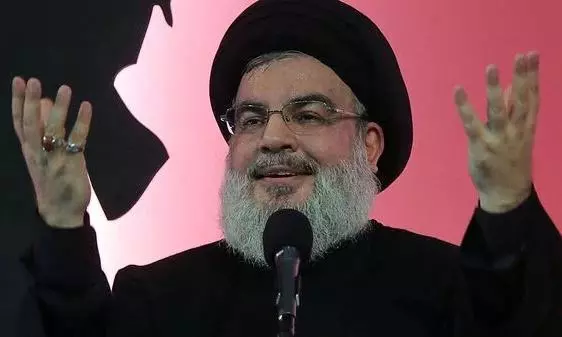
Hezbollah confirms leader Hassan Nasrallah killed, sparks concerns over group's future
text_fieldsLebanon's Hezbollah has officially confirmed the death of its leader, Sayyed Hassan Nasrallah, following an Israeli airstrike in Beirut's southern suburbs.
The militant group, in a statement released on Saturday, vowed to continue its fight against Israel in support of Gaza, Palestine, and the people of Lebanon.
This announcement marks a significant turning point for Hezbollah, as Nasrallah has been a central figure for over three decades. His leadership transformed the group from a militia resisting Israeli occupation into a powerful political and military entity in Lebanon.
The airstrike targeting Nasrallah took place on Friday, and Hezbollah’s Al-Manar TV station began broadcasting Quranic verses following the confirmation of his death, reported Reuters.
Hassan Nasrallah, born in 1960 in East Beirut, played a crucial role in shaping Hezbollah’s operations and influence in Lebanon and the broader Middle East. After joining the Amal movement as a teenager, he transitioned to Hezbollah in 1982 after the Israeli invasion of Lebanon. He rose to leadership in 1992 following the assassination of his predecessor, Abbas al-Musawi.
Under Nasrallah’s leadership, Hezbollah was instrumental in driving Israeli forces out of southern Lebanon in 2000. His firm opposition to Israel and his strategic alliances, particularly with Iran, solidified his status as one of the most influential figures in the region.
Nasrallah’s death presents a serious challenge for Hezbollah, especially as it faces escalated conflict with Israel. Israeli airstrikes have intensified following the October 7 attack by Hamas, Hezbollah's ally, leading to further tension across the Lebanese border.
Political analysts believe Nasrallah’s death will impact the group's internal dynamics and morale. Lina Khatib, a Middle East expert, noted that while Hezbollah is unlikely to collapse, Nasrallah’s death is a major blow, underlining Israel’s military dominance. The group has already lost several key commanders in recent years, raising concerns about its future operations, reported NDTV.
Hezbollah’s future leadership now comes into focus.
Hashem Safieddine, a senior Hezbollah official and cousin of Nasrallah, is widely seen as the most likely successor. Safieddine has played a key role in overseeing the group’s political affairs and is a member of Hezbollah's Jihad Council. His close ties to Iran and his long-standing position within Hezbollah make him a prime candidate for leadership.
The U.S. has previously designated Safieddine as a terrorist, further highlighting his importance within the group.
Iran, Hezbollah’s main backer, issued a statement following Nasrallah’s death. Supreme Leader Ayatollah Ali Khamenei condemned Israel, calling the airstrikes "savage" and urging Muslims to stand with Hezbollah in Lebanon. Khamenei’s statement also emphasized that Hezbollah remains a key force in resisting Israeli aggression, underscoring the group's role in shaping the region's future.
Reports indicate that Khamenei has been moved to a secure location, and Iran is currently in discussions with Hezbollah and other allies about the next steps following Nasrallah’s death.
While Hezbollah has vowed to continue its fight, the loss of its long-standing leader raises questions about its future direction and capacity to maintain its operations amid growing Israeli military pressure.























